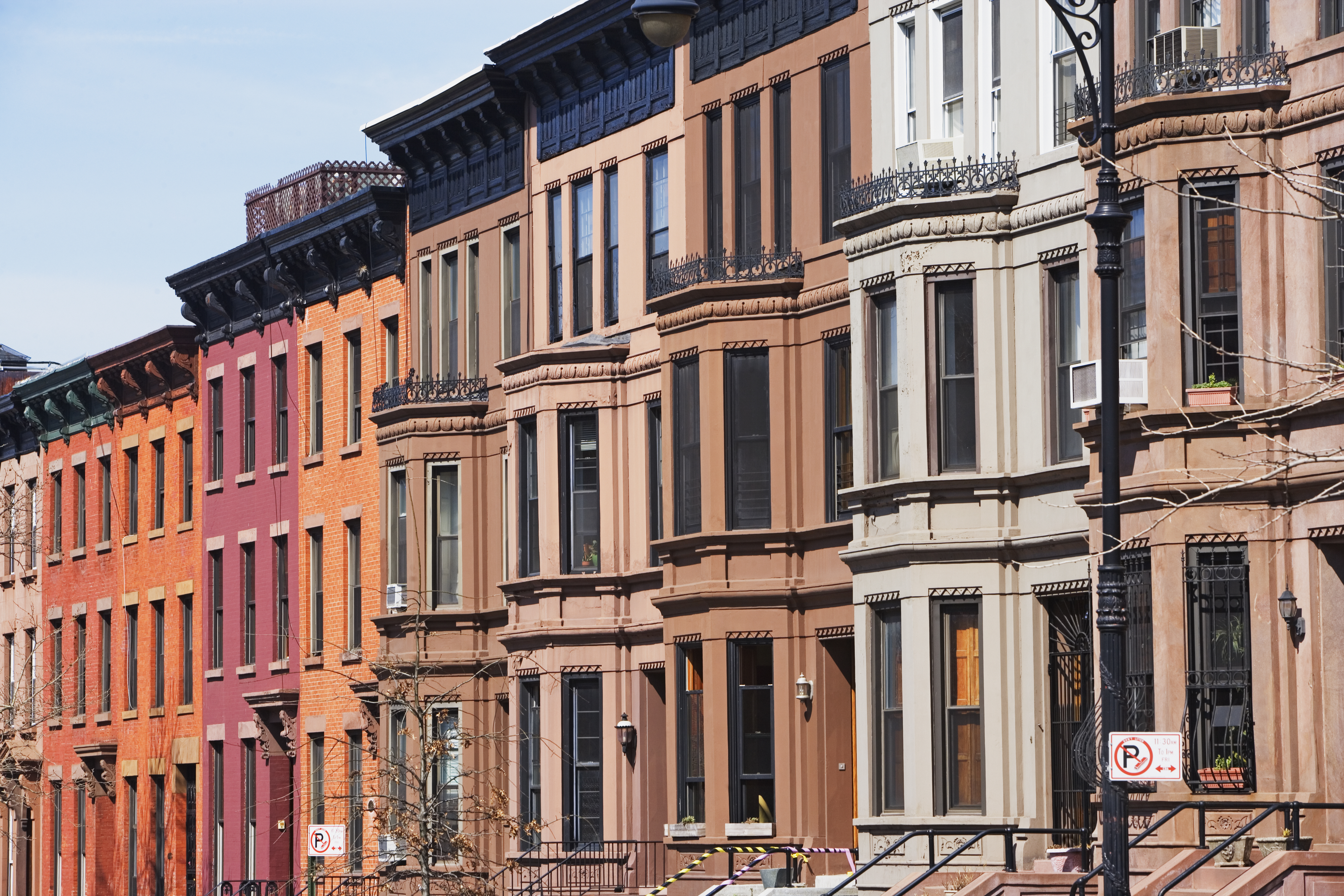A Harvard University alum is at her wits end after being repeatedly denied apartments by New York City landlords, despite her $90,000 salary, pristine credit score and no student debt.
The Black college grad, who asked not to be identified, says she’s starting to believe the alleged black-listing is because of her Black skin.

A Black Harvard graduate says she’s stuck living at her old apartment on a month-to-month basis after alleged racial discrimination by New York City landlords has made it impossible to find a new place to live. (Photo: fotog / Getty Images)
“It’s so incredibly frustrating as a black woman to have checked off every box in my career, to literally be ‘twice as good’ to only get half as much in this city,” she told the Bed-Stuy Patch in a recent interview.
The 28-year-old, a singer/songwriter who works as an education consultant and hosts #BlackHour events to support Black-owned businesses, said her “pristine application” hasn’t gotten her any closer to landing a new place to call home. Instead, she’s lost nearly $500, has had points stripped from her credit score and spent hours away from her job applying for five different rentals only to be denied by landlords who say she’s “fiscally irresponsible.”
The Harvard grad said her issues started in July when the lease on her current four-bedroom apartment was ending and she was looking to downsize to a two-bedroom in either Bed-Stuy or Crown Heights — both rapidly gentrifying neighborhoods in Brooklyn, New York. She said she and her real estate broker, Michael Jude, decided to get a head start on their search because of problems she’s faced in the past with securing an apartment.
“I faced a lot of racism when I applied for the apartment that I have now,” she told the outlet. “I knew this apartment search would be crazy.”
That it was. The longtime New Yorker said she was twice rejected for the first apartment she applied to after the landlord initially told her the place was hers, but then gave it away to someone else. Managers for the second rental also gave her a hard time, demanding that she provide two years of financial records, six months of bank statements and loads of other financial documents.
Like with the first apartment, the managers told her that she was a “sure thing” after she paid a $125 application fee. However, their story changed and the would-be tenan was suddenly too much of a financial liability to secure the $2,200-a-month Pacific Street rental.
“I make well over 40 times the rent,” she argued. “What’s the hesitation?”
According to her broker, the property owners claimed the issue was that she only had five lines of credit, including long-term payment plans like student loans and a few credit cards. They said she needed eight.
“That one that made absolutely no sense,” said Jude, noting that his client’s trade lines have been open for five years and that she has never missed a payment. “I’ve been in the business in a little and I’ve never heard of that.”
The cost of living across Brooklyn and other parts of NYC has steadily risen in the last few years. A market analysis by RentCafe shows that the average rent in Brooklyn, as of August 2019, is $2,924 for around 645 square feet of living space, though apartment styles vary. In Bedford-Stuyvesant specifically, an apartment can cost upwards of $3,025 per month compared to the “transitional neighborhood” of Crown Heights, where a one-bedroom costs an average of $2,513 a month.
Gentrification in both communities has made Brooklyn a hot spot for pricey luxury developments and new white, hipster transplants looking to live the city life. NakedApartments.com noted that Bed-Stuy, in particular, had long been home to large African-American and Caribbean communities but has since become “synonymous with Brooklyn’s social and cultural cachet.”
The changing landscape has proven problematic for renters of color like the Harvard grad, who fear they’re being pushed out to accommodate white, affluent residents. Her broker, Jude, told Patch it’s clear his client is being discriminated against but griped that, unfortunately, “this is a normal experience.”
Jude said he’s shown countless homes to Black and Brown people, only for their applications to be denied by landlords “looking to make it a hip area,” he recalled one manager telling him. Moreover, he said he’s witnessed these same owners illegally discriminate against folks who rely on federally funded programs to help pay their rent.
“It’s frustrating,” he said. “I see this on a daily basis.”
His client’s third rejection came from property managers from 3 Quincy Corp., whom she claims called up to her job and began asking her supervisor “weird questions” about her work ethic and behavior in the office.
“They made it feel like I was applying for another job,” she opined.
After a month and a half of searching, the Ivy Leaguer is still without a place to live. For now, she’s staying at her old apartment on a month-by-month basis (because her lease lapsed) until a new place comes through.
As she continues searching for a new rental, the New York woman said she hopes to spark a larger discussion about housing discrimination with others who may have faced similar obstacles during their apartment search.
“It’s hard to prove racism. … I can’t prove it, but I can talk about it,” she told Patch. “I just want to know how many other people who have experienced this? And what other barriers they face?
“I did everything you’re supposed to do,” she added. “And I still can’t find a place to live.”


